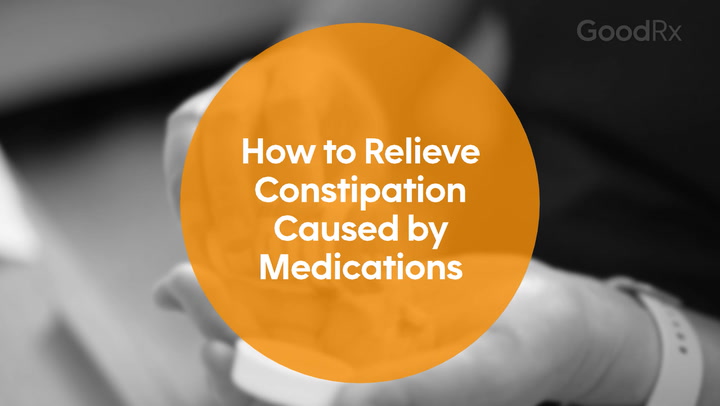
7 Allegra Side Effects You Should Know About
Key takeaways:
Allegra (fexofenadine) is an over-the-counter (OTC) antihistamine often taken to relieve allergy symptoms. While it’s generally well tolerated, it may cause side effects for some people.
Common Allegra side effects include headache, indigestion, and dry mouth. Some people also report nausea, constipation, and weight gain with Allegra, but these haven’t been confirmed as side effects by clinical trials.
Side effects from Allegra are usually mild and can be managed at home. If they don’t go away or they’re bothersome, talk to your medical care team for tips on how to manage them. In some cases, you may need to stop taking Allegra.
Access savings on related medications
Table of contents

For people experiencing seasonal allergies, an antihistamine like Allegra (fexofenadine) is often a go-to choice for relief. Allegra works by blocking histamine, a naturally occurring chemical in the body. Histamine is responsible for allergy symptoms, such as sneezing and watery eyes.
Allegra is a third-generation antihistamine. This means it’s less likely to cause drowsiness than older, first-generation antihistamines like Benadryl (diphenhydramine). Allegra is also available over the counter (OTC), so you don’t need a prescription to get this medication.
As with all medications, Allegra can have side effects. Although it’s generally well tolerated, it can still be helpful to know what you might experience while taking it.
Allegra side effects at a glance [Allegra side effects summary]
Many people take Allegra with few or no side effects. Most Allegra side effects that people do experience are mild and able to be managed at home. And they typically go away when you stop taking it.
Possible Allegra side effects include:
Headache
Indigestion
Back pain
Dry mouth
Drowsiness
Fatigue
Dizziness
It's also possible (but rare) for people to have an allergic reaction to Allegra. While allergic reactions aren’t a medication side effect, it’s still good to know that they can happen. Below, we’ll detail seven possible Allegra side effects, plus answer a few other Allegra questions.
1. Headache
Headache is one of the most common Allegra side effects. In clinical trials, a little over 10% of adults taking Allegra for seasonal allergies reported a headache. Experts don’t know why this side effect happens. But keep in mind that headache is also a common allergy symptom. So what you’re experiencing may be unrelated to the medication.
Lifestyle modifications, such as staying hydrated and getting extra rest, may help relieve headaches. OTC pain relievers, such as Advil (ibuprofen) or Tylenol (acetaminophen), can also be helpful. If headaches seem persistent or become bothersome, speak with your medical care team.
2. Indigestion
Indigestion is a common side effect of many medications. This feeling of stomach discomfort was reported by over 4% of people taking Allegra for chronic hives during clinical trials. A similar percentage of people taking a placebo (a pill with no medication in it) also reported indigestion. So, similar to headaches, Allegra may not be the only cause for this symptom.
Typically, this side effect is mild and manageable. To reduce indigestion, you can try some of the following tips:
Take Allegra with food.
Stay hydrated.
Eat smaller, more frequent meals.
Avoid spicy and fried foods.
Eat low-fiber foods (as with the BRAT diet) for a few days.
If these lifestyle changes don’t seem to help, there are OTC medications available. If your indigestion seems severe, talk to your medical care team to discuss other allergy medications.
3. Back pain
Back pain is another possible Allegra side effect. In clinical trials, a little over 2% of people with seasonal allergies reported back pain when taking Allegra. The reason this happens isn’t well understood by experts. But there are things you can do to help soothe your back pain at home.
Some tips may include:
Adjusting your sleep position
Using heat or ice packs
Exercising regularly
Performing stretches that support lower back muscles
Taking an OTC pain reliever
Talk to your medical care team if back pain is more than a mild discomfort. Severe or persistent back pain isn’t typical with Allegra. There could be another cause for your pain.
4. Dry mouth
Allegra has mild anticholinergic effects. Anticholinergics can reduce the amount of saliva your body makes. This can lead to dry mouth. This Allegra side effect can be bothersome, but it usually only happens when people take more than the recommended dosage. And long-term dry mouth can also lead to other health problems, including trouble swallowing and cavities.
Typically, dry mouth from Allegra is mild. Some at-home remedies that can help relieve this side effect include:
Staying well hydrated
Chewing on sugar-free gum
Sucking on ice chips
Following good oral hygiene practices, such as flossing and brushing twice a day
Using saliva substitutes, such as Biotene
If your dry mouth symptoms become too bothersome, let your medical care team know. They may suggest stopping Allegra.
5. Drowsiness
The chances of experiencing drowsiness with Allegra are very low. In fact, it’s one of the antihistamines that’s least likely to make you feel sleepy. But drowsiness with Allegra is still possible.
The risk of drowsiness is higher if you also take other medications that make you tired, or if you drink alcohol. People aged 65 years and older may also be more sensitive to this Allegra side effect.
It’s important to know how Allegra affects you before driving or performing other tasks that need focus. If you notice it makes you sleepy, try taking your dose at bedtime. Keeping a consistent bedtime routine, exercising regularly, and following a nutritious diet can also help combat drowsiness.
Does Allegra keep you awake?
No, Allegra shouldn't keep you awake. A very small percentage of people reported trouble sleeping in Allegra’s postmarketing studies. However, a similar number of people taking a placebo (a pill with no medication in it) also reported it. So it’s likely that this symptom was unrelated to the medication.
6. Fatigue
Similarly to drowsiness, Allegra can cause fatigue, but it’s rare. Adults age 65 and older and people drinking alcohol may be more likely to experience this.
As with drowsiness, getting enough rest, exercising, and getting proper nutrients can help improve the feeling of low energy. Taking Allegra at bedtime may also help limit daytime fatigue.
7. Dizziness
Dizziness is another possible Allegra side effect. While unlikely with Allegra, it’s possible for any antihistamine to make you feel dizzy. Taking Allegra at night may help prevent you from experiencing dizziness during the day.
If you do feel dizzy, find a safe place to sit and lie down until it passes. Be careful standing, making sure to hold onto something sturdy when doing so. Staying hydrated can help prevent dizziness.
Contact your medical care team if you experience severe dizziness or faint from dizziness. This isn’t typical with Allegra and should be evaluated.
Can Allegra cause nausea?
Nausea is a common side effect for many medications. But it’s very rarely reported by people taking Allegra. If you do experience nausea, it should be mild and resolve on its own. If it seems severe or you throw up, contact your healthcare team. There may be another reason for your symptoms.
If you find Allegra causes an upset stomach, try taking your dose with food. Just avoid taking it within 4 hours of fruit juices or green tea. These beverages can make Allegra less effective.
Does Allegra cause constipation?
While constipation is an anticholinergic side effect, it wasn’t reported in Allegra’s clinical trials. But there are many other reasons why you could be constipated.
Mild constipation can typically be managed at home. Some tips for getting things moving again include:
Gradually increasing your fiber intake
Drinking more fluids
Exercising or adding more movement into your routine
Discussing OTC constipation medications with your medical care team
If constipation seems severe, contact your care team. If left untreated, it can lead to serious complications, such as a bowel obstruction (blockage).
Does Allegra cause diarrhea?
Allegra doesn’t usually cause diarrhea. But some people are more sensitive to gastrointestinal side effects in general. It’s also possible that your diarrhea is related to one of Allegra’s inactive ingredients (like fillers or dyes).
Regardless of what’s causing your diarrhea, it’s important to stay hydrated. You may also want to avoid greasy and spicy foods. Contact your healthcare team if you’re still experiencing diarrhea for more than 2 days or have other symptoms, such as a fever or bloody stools. These symptoms usually indicate that your diarrhea is due to an infection.
Can Allegra cause weight gain?
We know older antihistamines, such as cyproheptadine, can cause weight gain. But a link between Allegra and weight gain isn’t fully understood or confirmed.
A 2010 observational study found that people taking Allegra were more likely to have a higher body weight than those not taking it. But this study didn’t look at whether they gained weight after starting Allegra. So we can’t use this study to say whether Allegra caused any changes in body weight.
Does Allegra cause hives?
No, Allegra shouldn’t cause hives as a side effect. In fact, it’s a common treatment for chronic hives.
If you develop hives after taking Allegra, you may be allergic to the medication. Stop taking it and contact your medical care team. They may want to evaluate you in person or prescribe a medication for the reaction you’re having.
Does Allegra cause cough or wheezing?
No, Allegra doesn’t cause coughing or wheezing as a side effect. Keep in mind that coughing can be an allergy symptom for some people. In many cases, this is caused by postnasal drip. But if you have both allergies and asthma, coughing and wheezing are common symptoms.
If you don’t have asthma and you’re not experiencing postnasal drip, coughing or wheezing could be symptoms of an allergic reaction to Allegra. Talk to your healthcare team to see if you should continue taking Allegra.
If you’re also experiencing shortness of breath or swelling of the throat, seek emergency help right away. These can be symptoms of a potentially life-threatening allergic reaction (anaphylaxis).
When should I contact my healthcare provider about Allegra side effects?
Most people don’t experience serious side effects with Allegra. It’s generally well tolerated, and considered safe for most people to take.
If you experience any of the following serious symptoms after taking Allegra seek immediate medical help:
Rash
Hives
Difficulty breathing or swallowing
Chest tightness
Swelling of body parts (face, throat, tongue, and others)
Itching
Hoarseness
The above symptoms could indicate a possible allergic reaction to Allegra. If anything seems life-threatening, it’s best to call 911 and go directly to the nearest emergency room.
The bottom line
Allegra (fexofenadine) is a popular over-the-counter option for the relief of allergy symptoms and is typically well-tolerated. Common Allegra side effects may include headache, indigestion, and dry mouth. Allegra doesn’t seem to cause constipation, nausea, or weight gain. Talk to your healthcare team if side effects become bothersome. There are other allergy relief options that may be a better fit for you.
Why trust our experts?



References
Craun, K. L., et al. (2022). Fexofenadine. StatPearls.
Huang, C., et al. (2019). Antihistamine effects and safety of fexofenadine: A systematic review and meta-analysis of randomized controlled trials. BMC Pharmacology and Toxicology.
Lee, S. W., et al. (2011). Fexofenadine-induced urticaria. Annals of Dermatology.
MedlinePlus. (2017). Fexofenadine.
NIH MedlinePlus Magazine. (2019). Histamine: The stuff allergies are made of [video].
Ratliff, J. C., et al. (2010). Association of prescription H1 antihistamine use with obesity: Results from the National Health and Nutrition Examination Survey. Obesity.
Sanofi-Synthelabo Limited. (2010). Allegra [package insert]. DailyMed.
Was this page helpful?
Related Articles
Browse medications
View AllResearch prescriptions and over-the-counter medications from A to Z, compare drug prices, and start saving.




























